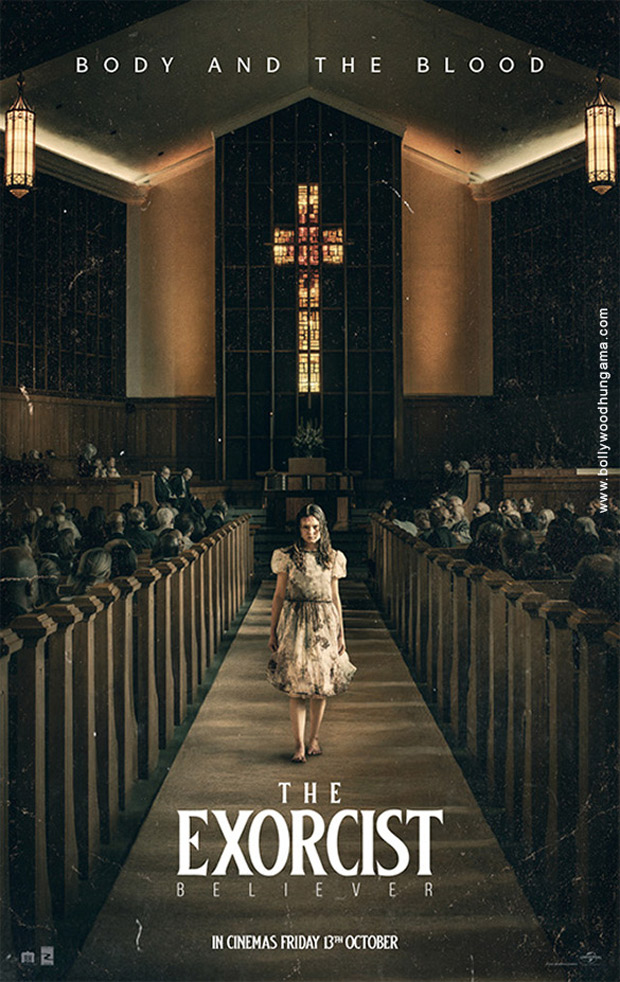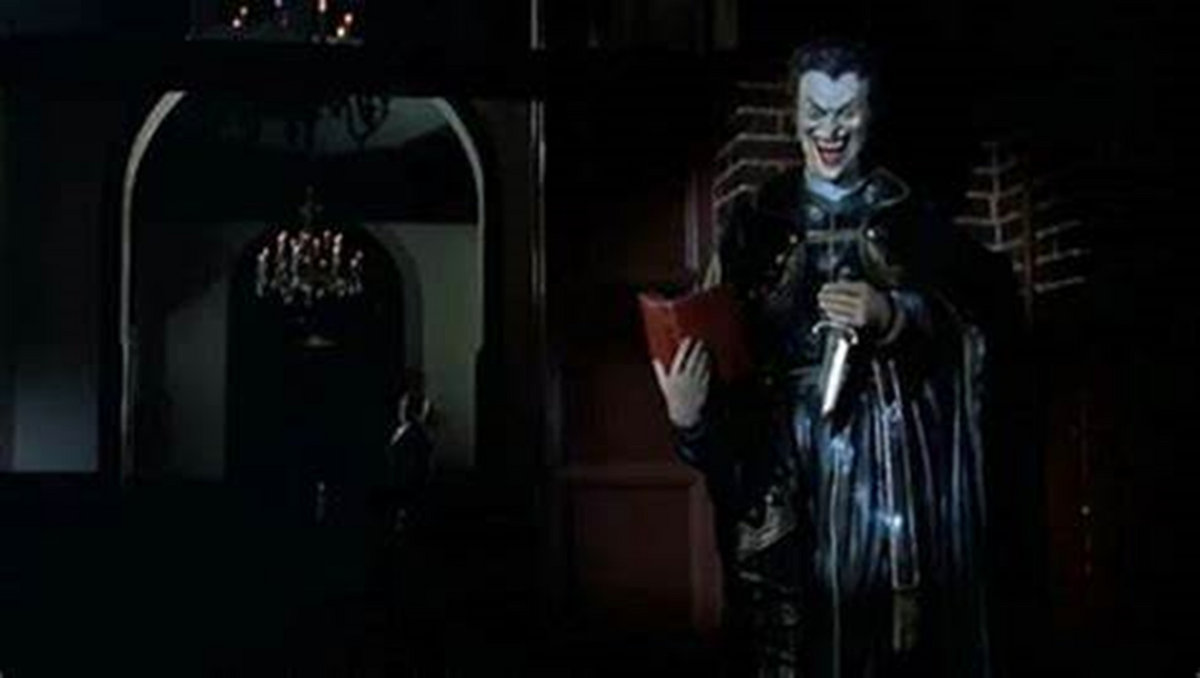The term "Believe Exorcist" sparks curiosity and intrigue, blending the realms of faith, spirituality, and the supernatural. For centuries, exorcisms have been a significant part of religious traditions, often depicted in books, movies, and folklore. But what does it truly mean to "believe" in exorcism, and who are the exorcists that dedicate their lives to battling unseen forces? In this article, we delve deep into the concept of "believe exorcist"—unraveling its historical roots, exploring its modern interpretations, and understanding the people behind this mysterious practice.
Exorcisms are rituals performed to expel evil spirits or demonic entities from individuals, places, or objects. Many religious traditions, including Christianity, Islam, Judaism, and Buddhism, have their own versions of exorcism rites. The phrase "Believe Exorcist" embodies the faith required to accept the existence of such phenomena and the dedication of those who carry out these rituals. Whether you're a skeptic or a believer, the stories of exorcists and their encounters with the supernatural are endlessly fascinating.
In a world increasingly dominated by science and reason, the belief in exorcism remains a compelling testament to the enduring power of faith and spirituality. From the Vatican-trained exorcists of the Catholic Church to independent practitioners who claim to combat malevolent forces, the journey of the "Believe Exorcist" is as much about faith as it is about the fight against darkness. Let’s explore this enigmatic world and uncover the truths and myths surrounding exorcism.
- The Tattooist Of Auschwitz Movie
- Who Was Married To Valerie Bertinelli
- How Did Guy Fieri S Sister Die
- How Much Money Do Jay Z Have
- Yellowstone With Kevin Costner
Table of Contents
- Who Are the "Believe Exorcists"?
- Historical Roots of Exorcism
- What Does It Mean to Believe in Exorcism?
- Famous Exorcists Throughout History
- How Do Exorcists Perform Exorcisms?
- Modern Interpretations of Exorcism
- What Makes an Exorcism Successful?
- Differentiating Fact from Fiction in Exorcism
- Is There Scientific Basis for Exorcism?
- The Vatican's Role in Exorcism
- Can Anyone Become an Exorcist?
- Challenges Faced by "Believe Exorcists"
- Impact of Exorcism on Pop Culture
- How to Determine if an Exorcism Is Needed?
- Future of Exorcism Practices
Who Are the "Believe Exorcists"?
The term "Believe Exorcist" refers to individuals who dedicate their lives to the practice of exorcism, driven by their faith in the existence of spiritual entities and their mission to combat them. These practitioners often come from religious backgrounds, such as Catholic priests trained by the Vatican, or they may be independent spiritual healers. Their work involves performing rituals to expel malevolent spirits, providing spiritual counseling, and restoring faith and peace to those affected.
| Attribute | Details |
|---|---|
| Name | Varies by practitioner |
| Religious Affiliation | Primarily Christian (Catholic), but can include other faiths |
| Training | Formal religious training or self-taught methods |
| Key Objective | To expel evil spirits and restore spiritual harmony |
Historical Roots of Exorcism
Exorcism has deep historical roots, with references found in ancient texts and scriptures. The Bible, for instance, contains numerous accounts of Jesus casting out demons. In ancient Mesopotamia, priests performed rituals to banish evil spirits believed to cause illness and misfortune. Across cultures, exorcisms were seen as a necessary practice for maintaining spiritual balance and protecting communities from harm.
What Does It Mean to Believe in Exorcism?
To believe in exorcism is to accept the existence of a spiritual realm where good and evil forces battle for influence. For many, this belief is rooted in religious teachings and personal experiences. It also involves faith in the power of exorcists to intervene and restore harmony. But belief in exorcism is not universal; skeptics often attribute possessions to psychological or medical conditions rather than supernatural causes.
Famous Exorcists Throughout History
Some exorcists have gained fame for their extraordinary work in battling demonic forces. Father Gabriele Amorth, a Catholic priest and official exorcist of the Diocese of Rome, is one of the most well-known figures in the field. Others, like William S. Bowdern, whose work inspired the movie "The Exorcist," have left lasting legacies through their dedication to this mysterious practice.
How Do Exorcists Perform Exorcisms?
The process of performing an exorcism varies depending on religious tradition and individual practices. In Catholicism, for instance, the Roman Ritual outlines specific prayers and steps to follow. The exorcist may use holy water, crucifixes, and sacred texts while invoking the name of God to cast out the spirit. Other traditions may involve chanting, meditation, or the use of sacred objects unique to their faith.
Modern Interpretations of Exorcism
In the modern era, exorcism has taken on new forms and meanings. While traditional rituals remain prevalent, some practitioners incorporate psychological counseling and medical evaluations into their approach. This holistic view acknowledges the complexity of possession cases, blending spiritual and scientific perspectives to provide comprehensive care.
What Makes an Exorcism Successful?
The success of an exorcism often depends on various factors, including the faith of the exorcist, the belief of the afflicted person, and the severity of the possession. Faith and perseverance are crucial, as exorcisms can be emotionally and spiritually draining. In some cases, multiple sessions are required to achieve the desired outcome.
Differentiating Fact from Fiction in Exorcism
Pop culture has heavily influenced perceptions of exorcism, often exaggerating or distorting its practices. Movies like "The Exorcist" and "The Conjuring" have captivated audiences but may not accurately represent real-life exorcisms. Understanding the difference between dramatic portrayals and authentic practices is essential for appreciating the true nature of this spiritual rite.
Is There Scientific Basis for Exorcism?
While exorcism is primarily a spiritual practice, some argue that it has psychological benefits for individuals who believe they are possessed. The ritual can provide a sense of relief and closure, akin to a placebo effect. However, mainstream science remains skeptical of supernatural claims, often attributing possession to mental health issues like dissociative identity disorder or psychosis.
The Vatican's Role in Exorcism
The Vatican plays a central role in the Catholic Church's approach to exorcism. It trains priests in the art of exorcism and offers guidance on identifying genuine cases of possession. The Vatican also emphasizes the importance of discernment, ensuring that psychological or medical conditions are ruled out before conducting an exorcism.
Can Anyone Become an Exorcist?
Not everyone can become an exorcist. In the Catholic Church, for example, only ordained priests with the bishop's approval can perform exorcisms. These priests undergo rigorous training to understand the spiritual and psychological aspects of possession. In other traditions, the requirements may vary, but a deep understanding of spiritual practices is typically essential.
Challenges Faced by "Believe Exorcists"
Exorcists face numerous challenges, from skepticism and criticism to emotional and spiritual exhaustion. The work can be isolating, as few people truly understand the demands of the role. Additionally, exorcists must navigate the fine line between faith and science, ensuring that their practices are ethical and respectful of the afflicted person's well-being.
Impact of Exorcism on Pop Culture
Exorcism has left an indelible mark on pop culture, inspiring countless books, movies, and TV shows. These portrayals have both popularized and sensationalized the practice, shaping public perceptions. While some view exorcism as a fascinating relic of the past, others see it as a powerful testament to the enduring battle between good and evil.
How to Determine if an Exorcism Is Needed?
Determining whether an exorcism is necessary requires careful discernment and evaluation. Signs of possession can include unexplained physical phenomena, changes in behavior, and aversion to sacred objects. However, these symptoms can also have psychological or medical explanations, making it crucial to consult professionals in both fields before proceeding with an exorcism.
Future of Exorcism Practices
The future of exorcism practices lies at the intersection of tradition and innovation. As society becomes more open to holistic approaches, exorcists may increasingly collaborate with psychologists and medical professionals. This integration of spiritual and scientific perspectives could pave the way for more effective and compassionate practices, ensuring that the legacy of the "Believe Exorcist" endures.
Related Resources:
Detail Author:
- Name : Henri Hudson
- Username : aliyah.pfannerstill
- Email : sarah.farrell@mante.org
- Birthdate : 1981-12-29
- Address : 14906 Beth Oval Suite 921 Alfordmouth, NY 64985
- Phone : +1 (386) 910-2972
- Company : Rempel and Sons
- Job : Psychiatric Technician
- Bio : Ipsum minus et tempora velit. Ullam amet ab autem. Omnis ut consequuntur quas. Magni itaque tempore aliquam nulla. Voluptatem provident ipsam commodi cupiditate qui.
Socials
instagram:
- url : https://instagram.com/ko'conner
- username : ko'conner
- bio : Voluptates dolorum veniam et ipsam quia aut velit nesciunt. Sapiente dolor qui autem in.
- followers : 796
- following : 1122
tiktok:
- url : https://tiktok.com/@kody_dev
- username : kody_dev
- bio : Unde ducimus aut voluptatum.
- followers : 473
- following : 102
facebook:
- url : https://facebook.com/o'connerk
- username : o'connerk
- bio : Laudantium dolor culpa cum ut ipsum voluptatem eveniet.
- followers : 2278
- following : 1781
twitter:
- url : https://twitter.com/kody.o'conner
- username : kody.o'conner
- bio : Architecto vero et est ipsa commodi. Veniam dolore animi dolorem omnis. Quo deserunt totam tempore perferendis et.
- followers : 5778
- following : 1537
linkedin:
- url : https://linkedin.com/in/kody4144
- username : kody4144
- bio : Voluptate deleniti dolorem ullam.
- followers : 932
- following : 396


